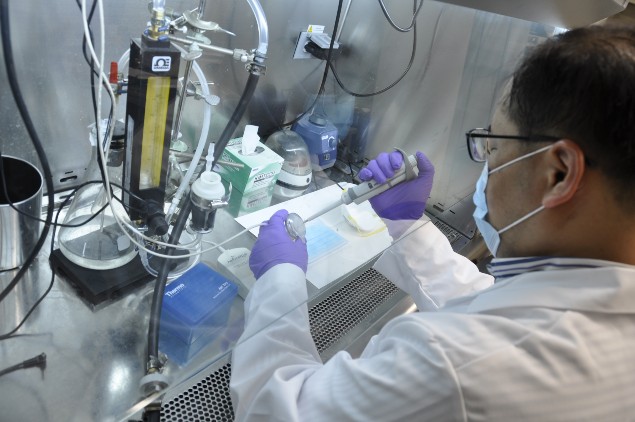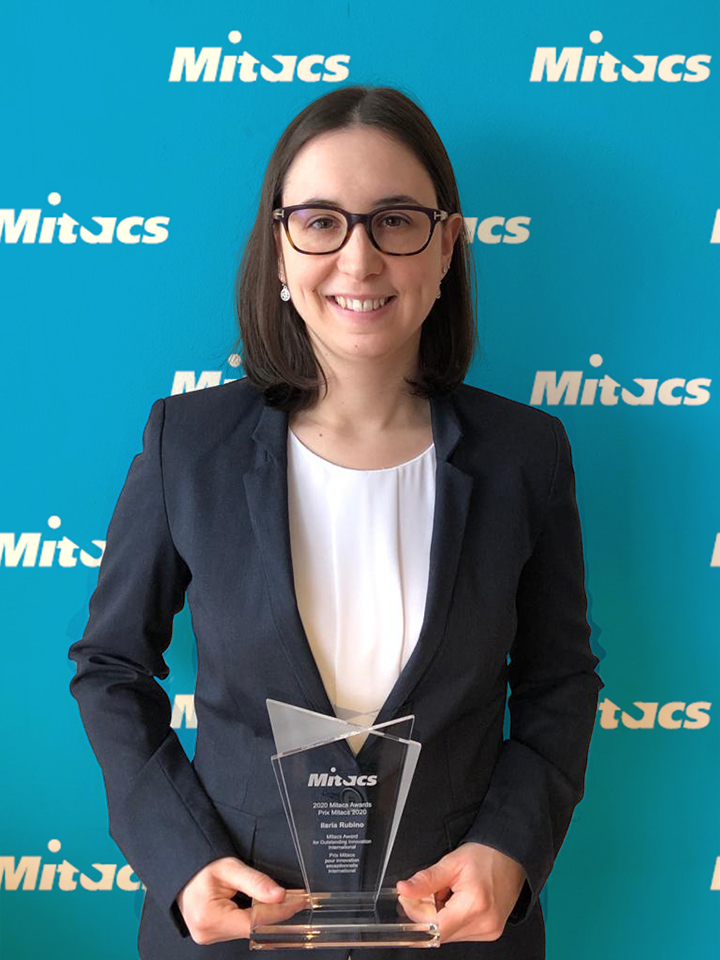A new salt coating can be applied to medical masks to kill viruses and bacteria before they penetrate, and a researcher at the University of Alberta has earned an award for her work developing it. When airborne droplets land on the mask the salt dissolves, but then the liquid evaporates and the salt grows back with sharp edges that severely damage the bacteria or virus. It is said to work within five minutes of pathogens landing on the mask.
Current masks are often limited to a single use and they must be handled with care to stop the spread of viruses or bacteria that may have landed on them. The salt coated masks are safe to use over again, and are said to be extremely breathable.

A lab at the University of Alberta has been working on special coating for medical mask innovations. (University of Alberta)
‘Our goal is to…keep people safe’
“Our goal is to reduce the risk of cross infection, reduce the risk of mask shortage, and ultimately keep people safe,” said Ilaria Rubino a researcher working in a team at the University of Alberta’s Department of Chemical and Materials Engineering. Rubino will receive an award for her work on the mask from Mitacs, a non-profit that fosters growth and innovation in Canada. It is funded by the Canadian government and several of the provincial governments.
It’s expected that the new masks will be commercially available next year, says Rubino, adding “that will greatly benefit Canada’s ability to respond effectively to future outbreaks of airborne diseases.”

Ilario Rubino was given the Mitacs Award for Outstanding Innovation for developing a salt coating that can be applied to surgical masks and respirators. (courtesy Mitacs)







For reasons beyond our control, and for an undetermined period of time, our comment section is now closed. However, our social networks remain open to your contributions.